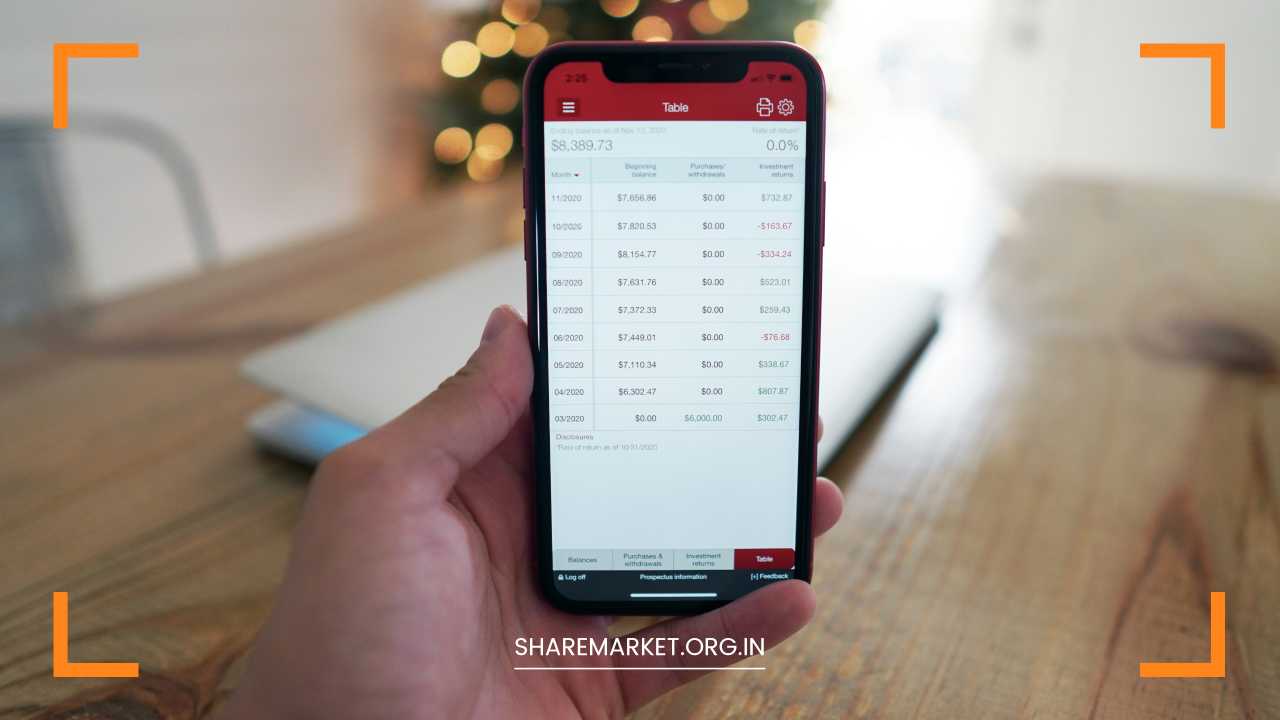Demat Account Meaning and Benefits

Demat Account Meaning
Demat Account: Your Gateway to the Indian Stock Market
Understanding Demat Accounts
A Demat account, short for Dematerialized account, serves as a digital repository for your investments, allowing you to hold securities in an electronic format rather than as physical certificates.
This modern approach to managing investments has fundamentally transformed the way transactions are conducted in the stock market.
Previously, owning physical share certificates could be cumbersome, involving manual handling and significant paperwork. With a Demat account, these securities are stored digitally, streamlining the process of buying, selling, and transferring shares.
This shift to electronic records helps reduce the risks associated with physical certificates, such as loss or damage, and enhances the efficiency of trading operations.
In India, the Securities and Exchange Board of India (SEBI) mandates the use of Demat accounts for all stock market transactions, making it an essential tool for investors in the Indian financial market. This regulatory requirement ensures a secure and organized trading environment.
Key Benefits of a Demat Account
A Demat account offers several significant advantages, revolutionizing the way investors manage their securities. Here’s a closer look at the key benefits:
Safety and Convenience: One of the primary advantages of a Demat account is the enhanced security it provides.
Unlike physical share certificates, which are susceptible to loss, theft, or damage, securities held in a Demat account are protected electronically.
This digital format eliminates the risks associated with handling physical documents and makes managing your portfolio much more straightforward.
You can easily access your account online and receive real-time updates on your investments, streamlining your financial management.
Speedy Transactions: Demat accounts facilitate quick and efficient transactions. Buying and selling shares is now a seamless process because transactions are executed electronically.
This electronic method ensures that the transfer of securities happens swiftly, significantly reducing the time required compared to traditional methods.
The elimination of manual processing speeds up settlement times, making the overall trading experience more efficient.
Cost-Effective: The dematerialization of securities brings considerable cost savings. By reducing the need for physical documentation, you cut down on paperwork and associated costs, such as stamp duty on share transfers.
This reduction in administrative expenses can result in substantial savings over time, particularly for frequent traders.
Dividends and Benefits Directly Credited: Corporate actions, such as dividends, bonus shares, and rights issues, are automatically credited to your Demat account.
This means you don’t have to manually claim or handle these benefits. The automatic crediting ensures that you receive your earnings promptly and without any additional effort on your part.
Enhanced Transparency: A Demat account provides complete visibility into your investment holdings. You can easily access detailed information about your securities, including transaction history and current market value.
This transparency allows you to monitor your investments more effectively and make informed decisions based on up-to-date information.
Accessibility: One of the most notable benefits of a Demat account is its accessibility. You can manage your investments from anywhere with an internet connection.
This flexibility means you can monitor your portfolio, execute trades, and review account statements on the go, providing greater control and convenience.
Fractional Ownership: Many brokers now offer the option of fractional share ownership through Demat accounts.
This feature allows you to invest in high-priced stocks with smaller amounts of money, making it easier to diversify your portfolio.
Fractional ownership lowers the barrier to entry for investing in expensive stocks, enabling more individuals to participate in the stock market.
Overall, a Demat account enhances the security, efficiency, and accessibility of managing your investments, making it an indispensable tool for modern investors.
How to Open a Demat Account
Opening a Demat account is a relatively simple and straightforward process. Here’s a step-by-step guide to help you get started:
- Choose a Depository Participant (DP): The first step is to select a Depository Participant (DP). A DP is a financial institution or a stockbroker authorized by depositories like NSDL (National Securities Depository Limited) or CDSL (Central Depository Services Limited) to manage Demat accounts. Most stockbrokers and banks offer Demat account services, so you can choose one that best fits your needs based on factors like fees, services, and convenience.
- Complete the Application Form: Once you’ve chosen your DP, you will need to fill out the Demat account opening form. This form can often be obtained from the DP’s website or office. It requires you to provide basic personal information, such as your name, address, and contact details. Some DPs offer online application processes, making it even more convenient.
- Submit Required Documents: After filling out the application form, you will need to submit certain documents for verification. These documents typically include:
- PAN Card: A permanent account number card issued by the Income Tax Department.
- Aadhaar Card: An identification card issued by the Unique Identification Authority of India.
- Passport/Driving License: For proof of identity.
- Bank Statement: To verify your bank account details and address.
- Photographs: Passport-sized photos might be required.
Ensure that all documents are current and match the information provided in the application form.
- Account Activation: Once you have submitted the application form and documents, the DP will verify them. If everything is in order, they will process your application and activate your Demat account. You will receive your account details, including the unique Demat account number, once the activation is complete.
The entire process is designed to be efficient and user-friendly, enabling you to start managing your investments in electronic form with ease.
Essential Documents for Demat Account Opening
Opening a Demat account requires specific documentation to ensure compliance with regulatory standards and to verify the identity and address of the applicant. Here’s a detailed list of the essential documents you’ll need:
- PAN Card: The Permanent Account Number (PAN) card is crucial for all financial transactions in India. It serves as a primary identification document for tracking financial activities and is mandatory for opening a Demat account. It ensures that your financial transactions are accurately recorded and monitored.
- Proof of Identity: To establish your identity, you must provide one of the following documents:
- Driving License: A government-issued document that verifies both your identity and your address.
- Voter ID Card: Issued by the Election Commission of India, it serves as proof of identity and address.
- Passport: A valid passport not only serves as proof of identity but also provides additional verification of citizenship.
- Aadhaar Card: Issued by the Unique Identification Authority of India (UIDAI), it is widely accepted as proof of identity.
- Proof of Address: To confirm your residential address, you need to provide one of the following documents:
- Driving License: As it includes your address, it can serve dual purposes for both identity and address verification.
- Voter ID Card: Also acceptable for verifying your address as it includes your residential details.
- Passport: This document can be used if it shows your current address.
- Bank Statement: A recent bank statement or passbook that includes your address helps verify your residence.
- Utility Bill: Recent utility bills such as electricity, gas, or telephone bills can be used as proof of address.
- Recent Passport-Sized Photographs: Typically, you will need to provide a few recent passport-sized photographs. These are used for your account records and to complete various forms required by the Depository Participant (DP).
Having all these documents ready and accurately filled out will streamline the process of opening your Demat account, ensuring a smooth and efficient setup.
Additional Considerations
When opening a Demat account, it’s important to be aware of several additional factors:
- Demat Account Charges: Various fees are associated with maintaining a Demat account. These typically include annual maintenance charges (AMC), transaction charges for buying and selling securities, and sometimes additional fees for services such as pledge or rematerialization of shares. These charges can vary widely between different Depository Participants (DPs), so it’s crucial to review the fee structure of each DP before making a choice.
- Trading Account: Although a Demat account handles the electronic storage of securities, it does not allow you to execute buy or sell transactions. For this purpose, a trading account is often required. While not mandatory, opening a trading account in conjunction with your Demat account can simplify the process of buying and selling shares. Many financial institutions offer bundled services, where both accounts can be managed through a single platform.
- Online Platforms: Many DPs provide online platforms and mobile apps that allow for convenient account management and trading. These digital tools enable you to monitor your investments, execute trades, and access account statements anytime and anywhere. They offer real-time updates and streamline the trading process, enhancing your overall investment experience.
By opening a Demat account, you gain the ability to participate actively in the Indian stock market. It’s essential to conduct thorough research and compare different DPs to find one that best meets your needs and offers competitive rates.

















